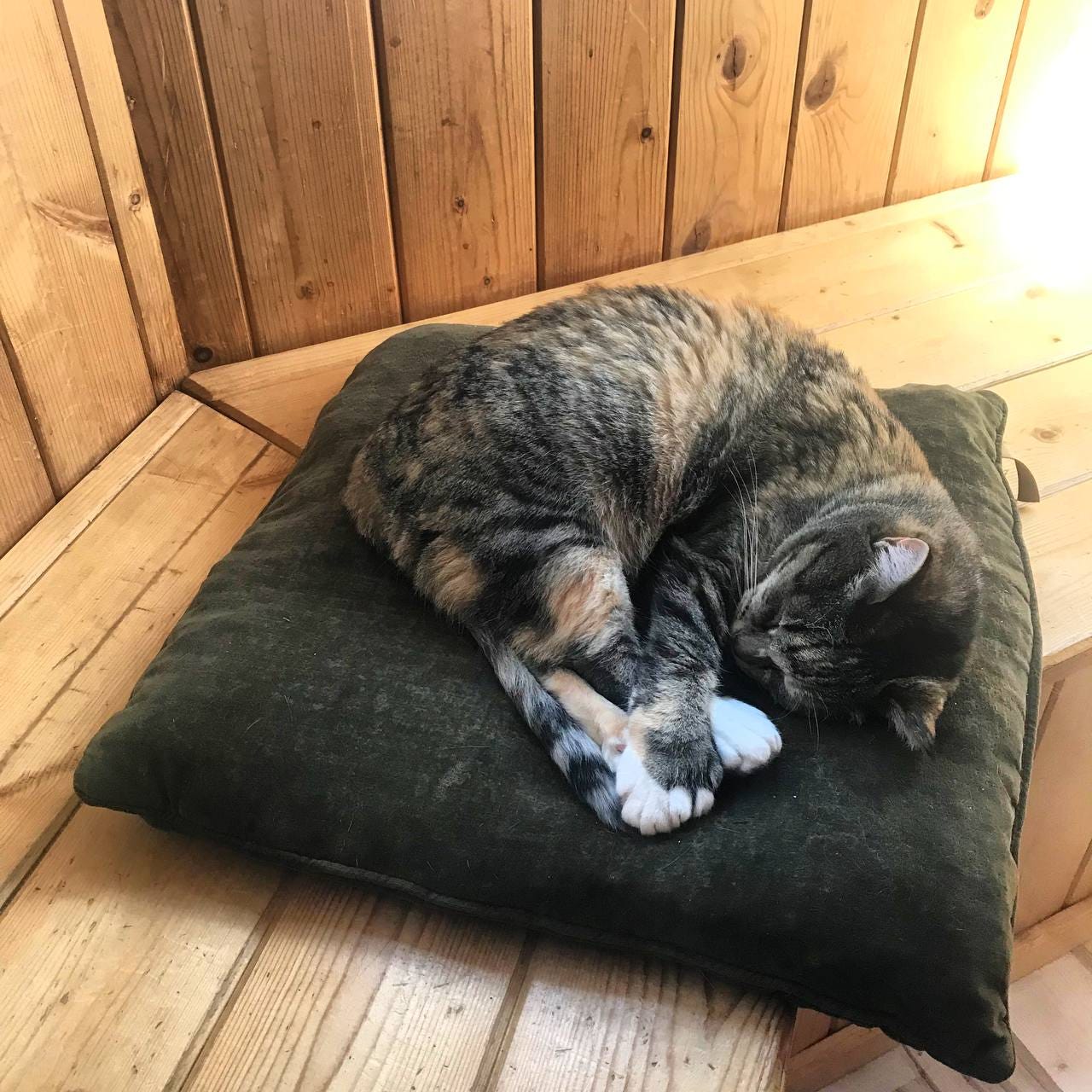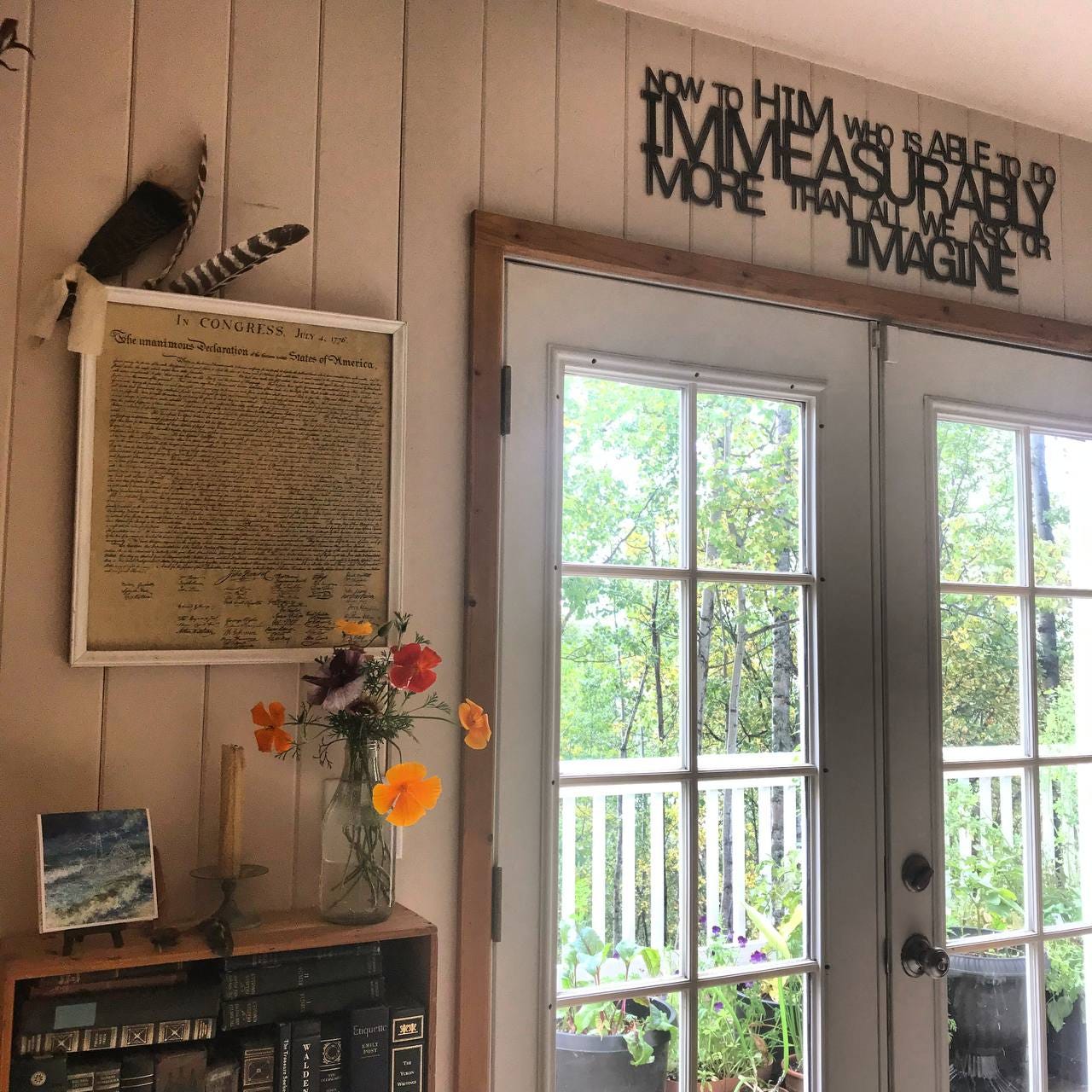We never need someone’s permission to do the right thing. Seems like that should be obvious, but apathy and cowardice and destruction hide behind many doors, and “I’m not allowed to” is sometimes one of them.

Years ago when the Matanuska River was flooding its banks and the local government was dinking around with bureaucratic red tape, we watched a house a few doors down from my grandma’s tip into the river as the water ate up the ground underneath it and then proceeded to slowly swallow the house as it floated toward the Knik Arm.
It was 1991. The edge of the river moved closer to her house every day, and if nothing happened by the time it got to her property line it would be too late, because that was a mere hundred feet from the foundation of her house. So while those “in power” did nothing (and does that mean they’re really in power at all?) my dad and uncles dropped concrete slabs down the embankment to shore up the side, deterring the rapid erosion. They saved her house, and probably several others downriver, before a series of dykes were installed to keep the Matanuska in check.

So now it’s 33 years later, and in another rural part of the country we have a much bigger problem:
People are stranded in disaster areas without food, water, or fuel, and institutions and government blowhards who are supposed to help are confiscating supplies, and clearly up to something else.
[Warning: Many of these videos I’ve linked have language and other details you will not want to play around your kids. But adults need to hear it – we’re not sugar; we won’t melt.]Citizens try to help but are blocked by government officials and threatened with arrest. Government resources are grounded instead of helping…but that doesn’t stop them from taking credit for what civilians are doing on their own.
People were dying as a senile “president” flew over, blocking air traffic from those trying to deliver supplies, undoubtedly causing more deaths from the delay.
If all this sounds unbelievable to you and you think things are fine, you need to turn off your TV and stop listening to people who are paid to lie to you, and start listening to real people. Like here. And here. And here.
A government who sent billions of dollars across the world to foreign nations now says there’s nothing left to give to citizens, but then releases a meager $750 via the flick of a middle finger to Americans who’ve lost everything.
What is happening?
If you were paying attention to what happened in Maui, you probably already know.
So…abhorrent, dire conditions in our own country. I sit here, far away in Southcentral Alaska, at my desk and on the couch and at the kitchen table with my family, remote from it all and yet hyperaware that Alaska has its own vulnerabilities and enemies, foreign and domestic. Wherever you are in America, you do, too.
But what can we do?
With such need, and corruption, and distance, what can we do that goes beyond mailing a check? How do we help, how do we resist, and how do we protect our own communities?
And I looked and arose and said to the nobles and to the officials and to the rest of the people, “Do not be afraid of them. Remember the Lord, who is great and awesome, and fight for your brothers, your sons, your daughters, your wives, and your homes.”
– Nehemiah 4:14
We create a life out of slow, single days, tiny beads on a string, and one event can wipe it all out. I look around, and everything I do is slow work: Growing food is slow, raising poultry is slow, writing is slow. Parenting and teaching and healing is slow. Supporting small businesses and strengthening families is slow.
It is easy to get bogged down looking too close at my own inabilities, and despair. The needs are immediate, relief needed right now. And we don’t know what tomorrow will bring. But we must not capitulate to the enemy’s ploy to make us feel powerless and helpless.
Prayer is fast. Miracles are fast, and they’re needed right now.
Prayer reaches across the distance and touches people at the speed of thought, bringing supernatural protection and favor and wisdom and guidance. We don’t know the details and most of us can’t get there, but God does and can, and is there.
Prayer doesn’t care about the mocking, scoffing, spitting, disbelieving. Let them berate and see how much peace they find from their ignorant faithlessness. It doesn’t care about permission or blowhards or red tape; it soars right over, blasts right through, the agreement with God’s goodness releasing His power to change situations, to create something out of nothing, to lead those who don’t know where to go or where to look, to draw water from the rock.
So there’s that, and it’s definitely something.

I had a long conversation with one of our kids about all these events, and why we do what we do – why we shop certain places and avoid others, why we spend time learning and teaching things that aren’t on a curriculum. You can’t go wrong in learning about prayer, healing, security, and food, I told her. All we can do is the thing God’s telling us to right now, today, in this moment.
For example, when you learn about healing, you learn that there are four stages to it: hemostasis (stopping the bleeding), inflammation (scabbing over), rebuilding, and strengthening.
What strikes me about this is that none of it is done in isolation: At first, the closest blood cells come together to clot and protect the wound. But then, white blood cells and oxygen come in. Then red blood cells come in, helping to rebuild new tissue.
We have a huge gash in our Southeastern states right now, and the process of stopping the bleeding, clotting, and protection is in full force thanks to those who didn’t wait for permission to do the right thing. Meanwhile, those of us holding down the fort in other areas do well to strengthen our immediate surroundings, to fight against the attempts to obliterate our communities and culture. We don’t know when our own tissue could be injured, or our red blood cells called in to reinforce healing needed nearby.
When all else fails and you are overwhelmed, unsure of what to do or prioritize, look at the core strengthening things. What foundations need shored up? What relationship needs some extra time, or just an extra hug? What small task is going to bolster your day tomorrow? Do you need an extra hour of sleep, an extra glass of water? We can get so focused on the big things that we forget the little things until they turn into big things we could’ve prevented.
And the effect of righteousness will be peace, and the result of righteousness, quietness and trust forever. My people will abide in a peaceful habitation, in secure dwellings, and in quiet resting places.
— Isaiah 32:17-18
There are so many voices out there. Many of them are good and true. But we still need to be quiet, to stop scrolling for a while, and listen for Him to speak specifically to us, just to us, in the quiet.
It’s important to starve the voices that aren’t true. We have to prioritize who we give the microphone to in our lives. We can turn the volume down on the excess noise in our society by trimming the amount of time we scroll.
We can’t go wrong in reaching out, making stronger connections, hugging the prickly kid, texting the distant kid, feeding more broth and tea to the sick kid. We can read good books, pray for our neighbors, grow and cook real food, memorize Scripture, learn new skills. We can repair rather than replace, create more and consume less. We can smile and talk with the person in line at the grocery store or post office. We can filter our media consumption, and prioritize what gives life, beauty, joy, and wisdom.
We will probably never regret doing things like deep cleaning our kitchen, taking flowers to a friend, or spending an extra few minutes talking with our kids at bedtime.

These are the things that bring oxygen, that create healing, that prevent injury and sickness, that declare to the world, We are building Kingdom culture and we have no intention of stopping. Where it’s damaged and hurting, we will rebuild and reinforce and strengthen, and as many times as it is wounded, we will keep rebuilding, and won’t wait for paperwork to go through or for bureaucrats to finish dinking around or for a government blowhard to give us the green light.
We are Kingdom people; we live in the green light, and we will keep moving forward.
We don’t need anyone’s permission to love our neighbor. We don’t need the government’s permission to protect our families or build and strengthen our culture. We just need to do it.








